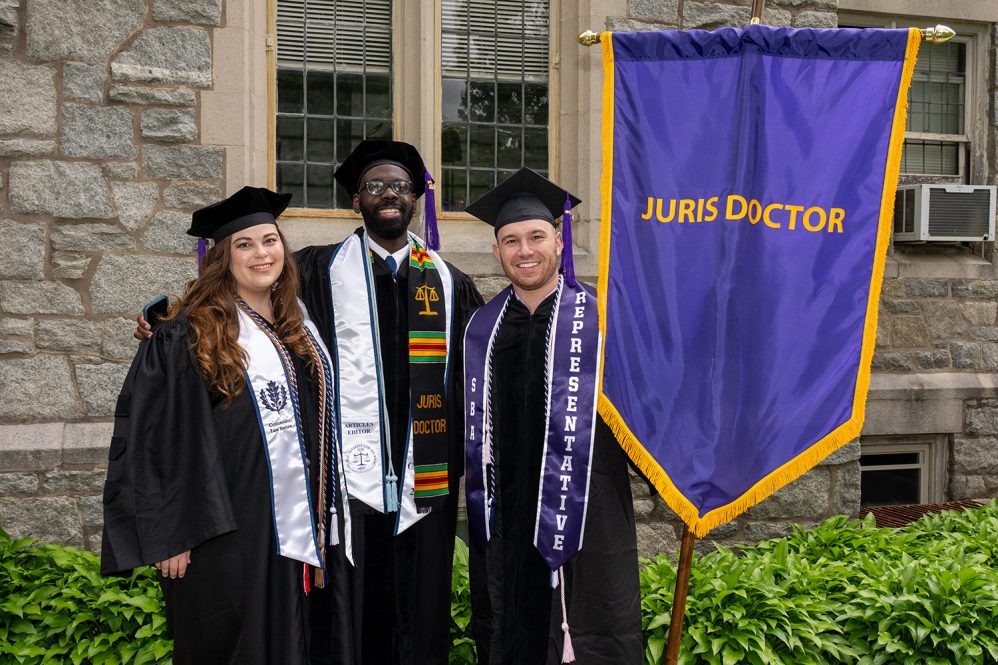The joy of achievement warmed a cool spring day as the UConn School of Law conferred 213 degrees at its 101st commencement on May 12.
The featured speaker, renowned civil rights attorney Stephen B. Bright, spoke to the Class of 2024 about wrongful convictions, overly harsh sentencing and the struggle for equal justice. Bright, who has won four death penalty cases before the U.S. Supreme Court, recounted the story of UConn basketball legend Maya Moore Irons and her work to overturn the wrongful conviction of Jonathan Irons. She married Irons soon after his release from prison in 2020.
“Even if you have a world-class basketball player on your side, you still need a lawyer,” Bright said, urging the graduates to provide the “guiding hand of counsel” to those in need.
See photos and video from commencement.
“This is a time when we’ve got to say, ‘Who’s hurting out there? Who’s hurting and needs us? Who’s crying and needs help? What children? What parents losing their children? What people out on the streets? What mentally ill people? What intellectually limited people who are desperate?'” he said. Lawyers have a monopoly on access to the legal system and must try to ensure that it serves the public interest, not just the interests of those who can afford to pay for it, he told the graduates.
Dean Eboni S. Nelson also focused on public service in her remarks, praising the students for their contributions through clinics, pro bono work and fellowships. “As graduates of UConn Law you are not only advocates for justice, but you are also guardians of justice, so please guard it well,” she said.
The Class of 2024 includes 150 graduates with juris doctor (JD) degrees, 62 with master of laws (LLM) degrees, and one with a doctor of the science of laws (SJD) degree. Three students graduated with dual degrees, and a remarkable 18 percent of the JD class will head directly into federal or state judicial clerkships.
Guliko Matcharashvili, speaking on behalf of the LLM graduates, recalled growing up in the nation of Georgia as the child of two deaf parents and using sign language as her first language. Although they encountered professionals who saw people with disabilities as less deserving, her family was most affected by those who were compassionate and helpful. “Every professional can be easily replaced, but the ones who love what they do and do it with respect for other people are remembered and admired,” she told her classmates.
Representing the JD graduates in the Evening Division, Gretchen Yelmini remembered that they started their studies online. Four years later, graduating as the “last of the pandemic classes,” the evening students of the Class of 2024 can boast of substantial achievements. Yelmini served as editor-in-chief of the Connecticut Law Review, and her classmates led many other campus organizations and initiatives.
Olaleye Onikuyide, speaking on behalf of the JD graduates in the Day Division, described a culture at UConn Law where students offer each other help and support through the struggles of life and law school, “embracing a commitment to mutual aid.” He asked his classmates to “carry this culture into the legal world, make justice accessible, make the profession a better place, make change where you can.”



